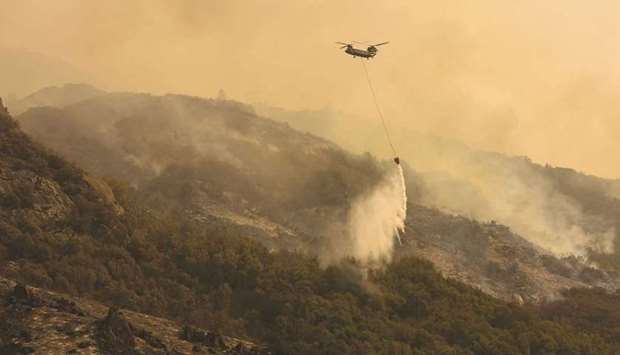We’re long past the days when uttering the words “climate economist” elicited confusion, pity, or worse: “Which is it? Pick your side! You can either focus on the climate, or the economy, not both.”
Nowadays, though, there’s another reaction that is more common, especially in many progressive circles that are typically most concerned with tackling climate change: “It’s your fault.”
No, not personally. Look, I’m vegetarian, have never driven, and share 750 fully electrified square-feet with two kids and a dog. (Rescue, of course, thanks for asking.) That list tends to soften the blow. But as an economist I know that individual action won’t do. It takes policy instead. And herewith begin the problems.
Economists, after all, prefer carbon taxes, or perhaps emissions trading. Either way, they prize efficiency uber alles, and generally extol the virtues of “simple” market-based solutions: Set the right price, and get out of the way. Well, kind of.
The discipline does itself few favours by generating massive sign-on letters with thousands of economists supporting public statements to that effect, arguing, for example, how “substituting a price signal for cumbersome regulations will promote economic growth.” Nobody, of course, wants unnecessarily cumbersome regulation. But it’s easy to see how statements like that can be misconstrued to argue for low prices at the exclusion of higher ones.
To his credit, Yale economist and Nobel Laureate Bill Nordhaus did not sign that “Economists’ Statement on Carbon Dividends” calling for this kind of regulatory simplification. His pioneering climate-economic model has often been maligned as pushing for lower carbon prices and, thus, less ambitious climate policy than would be warranted. Even some who signed the letter have called for significantly more ambition. Then there is what one might call the broader “ecosystem” of economic analysis that shows some real biases.
Ben Franta highlights these inherent biases in a new paper titled “Weaponising economics: Big Oil, economic consultants, and climate policy delay.” Franta is a history of science Ph.D. student at Stanford, with a J.D. and another Ph.D. in applied physics. His analysis shows how time and time again, economic consultant studies were used by the energy industry, their lobbyists, and others to delay climate policy. But is that simply an indictment of this particular set of economic consultants, or of economics more broadly?
In a long conversation, Franta argued for the latter, emphasising how, “Industry has been promoting certain people, certain models, and even a certain paradigm [of neoclassical economics] because it favours the industry.” It does, with what Franta rightfully calls its “biased starting point against regulation.” To Franta, thus, the “traditional merchants of doubt,” who set out to discredit climate science itself, and the economic doubters “come in a pair.”
There are indeed inherent biases built into the very structure of the discipline. Confusing precision with “rationality” might be among the most pernicious. Economic statements around what is desirable often rely on benefit-cost analysis — for example, tallying the benefits of cutting CO2 emissions, and weighing them against the costs of doing so. The biases there are clear: benefits are typically underestimates, while costs are overestimates.
I’d like to think that most economists are aware of these biases, even if they plow ahead with their analyses and subsequent policy pronouncements regardless. The work of economic consultants who apply the tools developed in academia, meanwhile, often go one step further. They are, for the most part, working for particular clients, who hire them for a reason.
The blame here, in the end, may not be so much on (academic) economists or economics itself, but on what Franta in our conversation called the “litigation-type approach to science” that is typically at the core of economic consultants’ work: “We don’t have to be right, because the other side has their own people.”
Economics done right, meanwhile, points to significantly more climate action than is currently happening. None of this, of course, lets economists off the hook from examining their own biases. But no, it isn’t economists’ fault. In the end, it’s all politics. It always is.
It’s just that economics is more political than most other scientific disciplines. And economists often aren’t helping their cause, especially when they try to bury the politics in their analysis.
* Gernot Wagner writes the Risky Climate column for Bloomberg Green. He teaches at New York University. His book “Geoengineering: the Gamble” is out this fall. Follow him on Twitter: @GernotWagner. This column does not necessarily reflect the opinion of Bloomberg LP and its owners.

A firefighting helicopter carries water to drop on the fire as smoke rises in the foothills along Generals Highway during a media tour of the KNP Complex fire in the Sequoia National Park near Three Rivers, California (file). Economics done right, meanwhile, points to significantly more climate action than is currently happening. None of this, of course, lets economists off the hook from examining their own biases.
